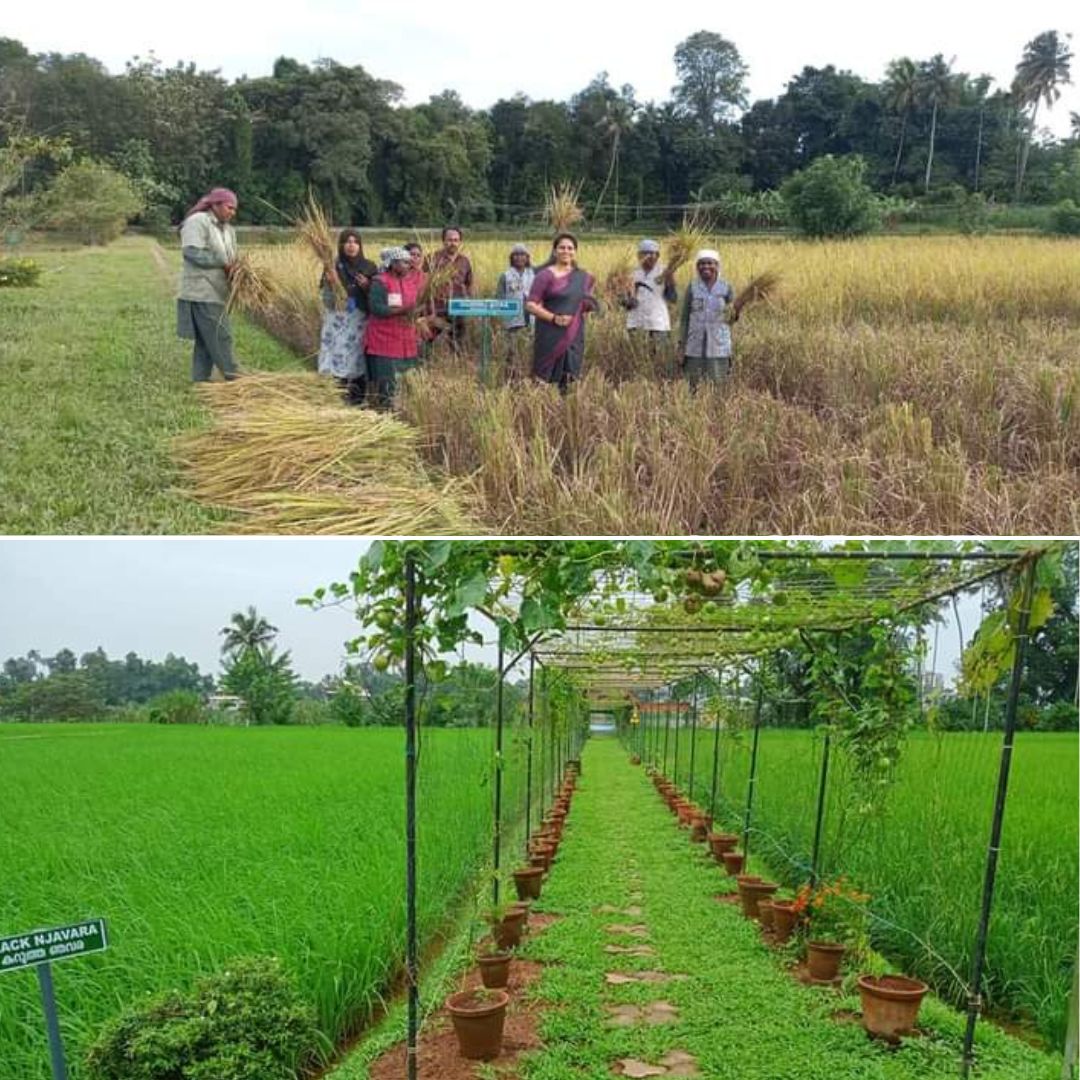
Image Credits: Facebook
In A First, Century-Old Government Seed Farm In Kerala To Be Declared Carbon-Neutral
Writer: Laxmi Mohan Kumar
She is an aspiring journalist in the process of learning and unlearning many things. Always up for discussions on everything from popular culture to politics.
Kerala, 30 Nov 2022 6:52 AM GMT
Editor : Jayali Wavhal |
She writes about gender issues, human interest, and environment.
Creatives : Laxmi Mohan Kumar
She is an aspiring journalist in the process of learning and unlearning many things. Always up for discussions on everything from popular culture to politics.
In a country that is moving toward a net-zero emission goal, a government-run seed farm in Kerala sets the motion by becoming the first ever seed farm in the country to be carbon-neutral.
India happens to be the world's third largest carbon polluter despite its active approaches to tackling emission rates. The country has set a target of achieving net zero emissions, indicating no more greenhouse gases will be added to the atmosphere by 2070. However, the ambitious plan continues to face several roadblocks in the form of financial aid, growing instances of stubble burning, and so on. At such a time, a state seed farm in Kerala's Aluva district brings hope by becoming the first-ever in the country to achieve carbon-neutral status. The farm has set up and practised a model that's worth taking lessons from.
Century-Old Farm Moving Ahead With Times
The more-than-a-century-old state seed farm on Thuruth island near Aluva is all set to be declared carbon-neutral on December 10 by Kerala Chief Minister Pinarayi Vijayan. Carbon emission and sequestration studies have already been conducted on the farm under the aegis of the Kerala Agricultural University College of Climate Change and Environmental Sciences. With the study's declaration, the seed farm becomes the first of its kind facility to be declared carbon-neutral in the country.
The declaration comes ahead of almost decades of efforts to inculcate healthy and organic farming practices. Over the years, they have introduced intercropping systems, scientific waste disposal systems, organic interventions to maintain soil health, and so on. All such practices culminated in absorbing carbon that would otherwise be released during various agricultural practices. They have also effectively switched from fossil fuels and energy-consuming equipment to reduce their carbon footprint.
One Of Many Firsts
The state-run farm has many firsts to its credit, including being the country's first comprehensively organic seed farm, which is driven by the concept of local food production and healthy consumption. Established around 1919 under the name 'Krishi Padasala,' it also comes along with an interesting history of having started off as a school for farming under the patronage of the erstwhile royal rule. According to an article by The Hindu, it was only a decade back that the farm got certified as an organic facility, and back until then, they worked along with the community towards building a healthy ecosystem.
These consistent efforts secured the farm the state agriculture department's Haritha Keerthi Award for the best government farm as well. Continuing their model system, the farm officials then began analysing and making efforts to reduce their carbon footprint this year in the month of August. They began the baseline survey to determine the total carbon emission and found that the emissions from the farm activities are 43 tonnes and carbon sequestration is 213. These numbers are a positive indicator of the farm being not only carbon-neutral but also carbon-negative.
 All section
All section














